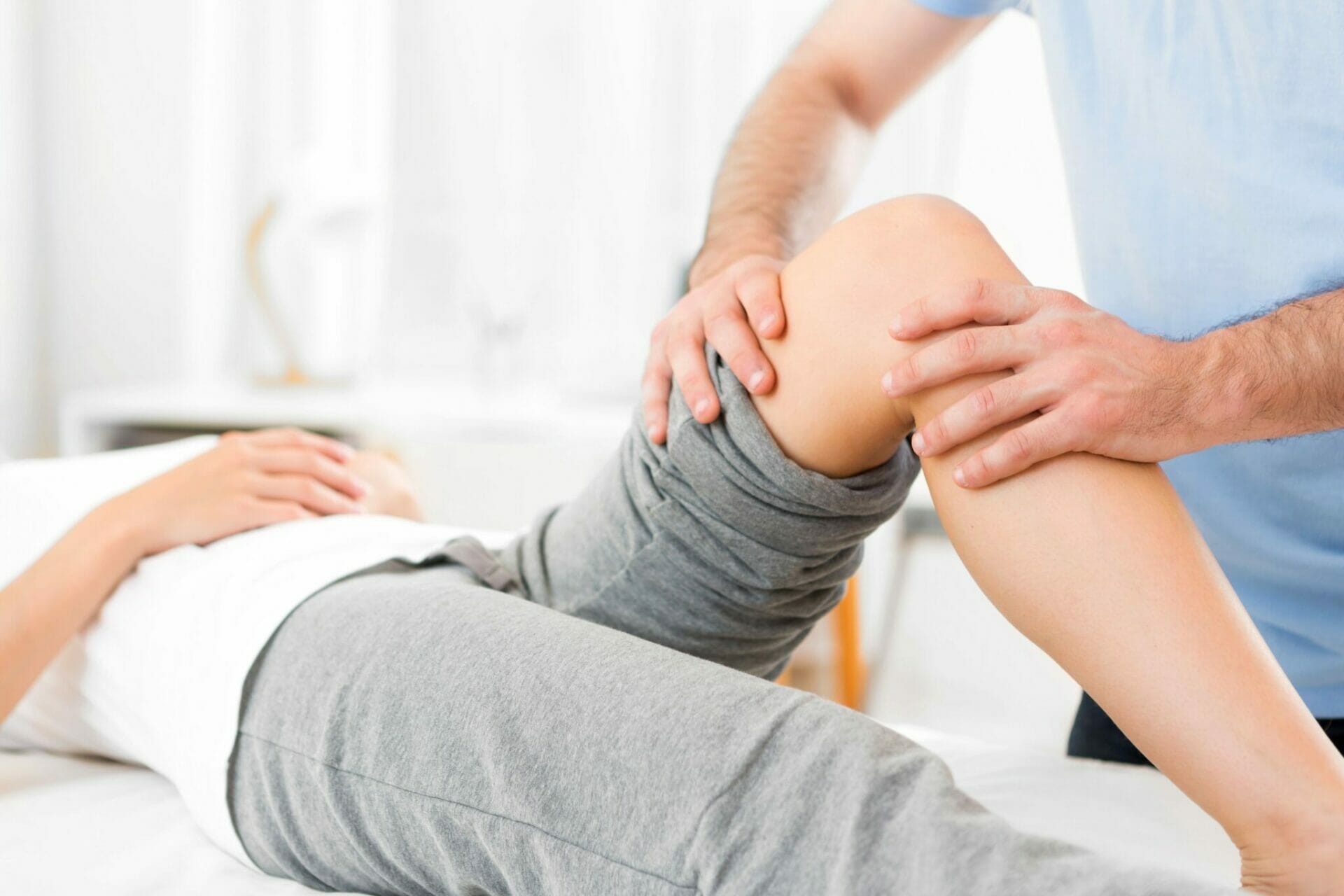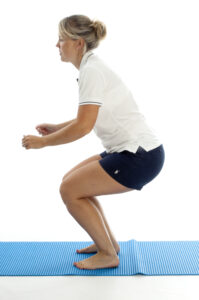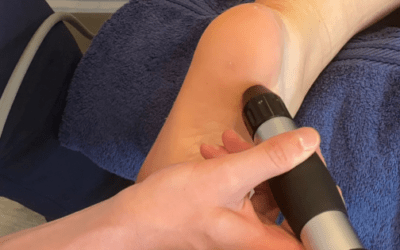 |
Today’s blog has been written by Never, our musculoskeletal (MSK) and neuro physiotherapist. |
Injury to the medial collateral ligament (MCL) is one of the common causes of pain on the inside of the knee – can physiotherapy help?
What is the medial collateral ligament?
The medial collateral ligament is a large ligament that spans the entire inside of the knee joint and is one of the four ligaments that are important for the stability of the knee joint. Its main function is to resist forces applied from the outer surface of the knee and so prevents the widening of the joint on the inside.
What causes a medial collateral ligament sprain?
A sprain happens when a ligament is stretched beyond its range of extensibility. The MCL is sprained when a force is applied on the outside of the knee when the foot is in contact with the ground. If this force is applied to a flexed knee when the foot is turned outward, this may cause the MCL to tear. This may occur through:
- landing wrong from a jump
- direct force on the outside of the knee e.g. rugby or football tackle
- twisting the knee while the foot is planted
- a sharp change of direction
- overuse walking, running, cycling for longer than normal
The severity, signs and symptoms of the sprain will depend on the extent of the stretch of the MCL. Immediate pain and a popping or tearing sound may be experienced at the onset of the sprain. Because the deep part of the ligament gets damaged first, MCL sprain may be associated with damage to the medial meniscus and/or the anterior cruciate ligament. The severity of MCL sprain is graded 1 (mild), 2 (moderate) and 3 (severe).
- Grade 1– slight stretch with no tear or less than 10% of the collagen fibres have been torn of the MCL causing pain and swelling (not always)
- Grade 2– partial tear of the MCL causing bruising, swelling and severe pain. The knee may give way and feel unstable affecting normal function of the knee.
- Grade 3– complete tear of the MCL causing pain (sometimes less painful than Grade 2 tear), bleeding under the skin and instability of the knee making it difficult to weight bear.
Who is at risk of MCL injuries?
People involved in sports: especially involving sudden stops and violent change of direction or shifting of body weight from one side to the other.
Being overweight: increased force is applied on the MCL . Overweight people are at least 4 times more likely to sustain MCL injuries.
Falls: a significant number of complex MCL injuries happen as a result of a fall. Activities that increase the risk of falling also increase the risk on MCL injuries. For example, individuals who run on uneven terrain are more likely to fall and therefore have a high risk of MCL injuries.
Older individuals: In old age, ligaments lose some of their elasticity and tear more easily.
Can Physiotherapy help?
The answer to that question is yes. In fact, only a small proportion of isolated MCL injuries will require surgical intervention. Most MCL injuries can be successfully managed by physiotherapy interventions. Early diagnosis and treatment is very important in the management of MCL sprain in order to enhance quick recovery and return to physical activity. As soon as any unusual swelling and tenderness on the inside of the knee is experienced, one should see a physiotherapist immediately. It is also important that all physical activities that may load the MCL should be avoided until recovery is complete. Off-loading the MCL is an important part of the management MCL sprain regardless of the severity of the injury. Grade 2/3 sprains may require bracing and/or use of crutches for a while in the initial stages. As for any other musculo-skeletal injuries, ice, rest, elevation and compression should be commenced immediately following onset of symptoms.
We as physiotherapists will provide interventions that will help you:
- relieve pain and inflammation
- improve the mobility of the knee
- improve strength of the muscle groups important in the normal function of the knee joint
- improve the flexibility of the same muscle groups
- improve movement neuro-muscular control of the lower limb through balance, agility and proprioception exercises
- guided return to physical activities and give advice on how to avoid re-injury
Here are a couple of good exercises to help strengthen your muscles if you have an MCL sprain.
Please be aware of your body and take advice from your GP before exercising or email us at enquiries@physio-logical.net for advice and guidance.
All of these exercises should be pain free.
|
Squats This exercise helps strengthen the weaker inner thigh muscle to improve the muscle imbalance.
|
|
|
Side Leg Raises This exercise helps strengthen the gluteal muscles to improve the muscle imbalance around the knee |
|
If you are suffering from knee pain or any other aches or pains then please get in contact with us via enquiries@physio-logical.net or 07835 712306. You can also book an appointment online.






